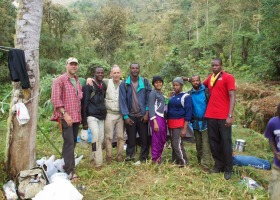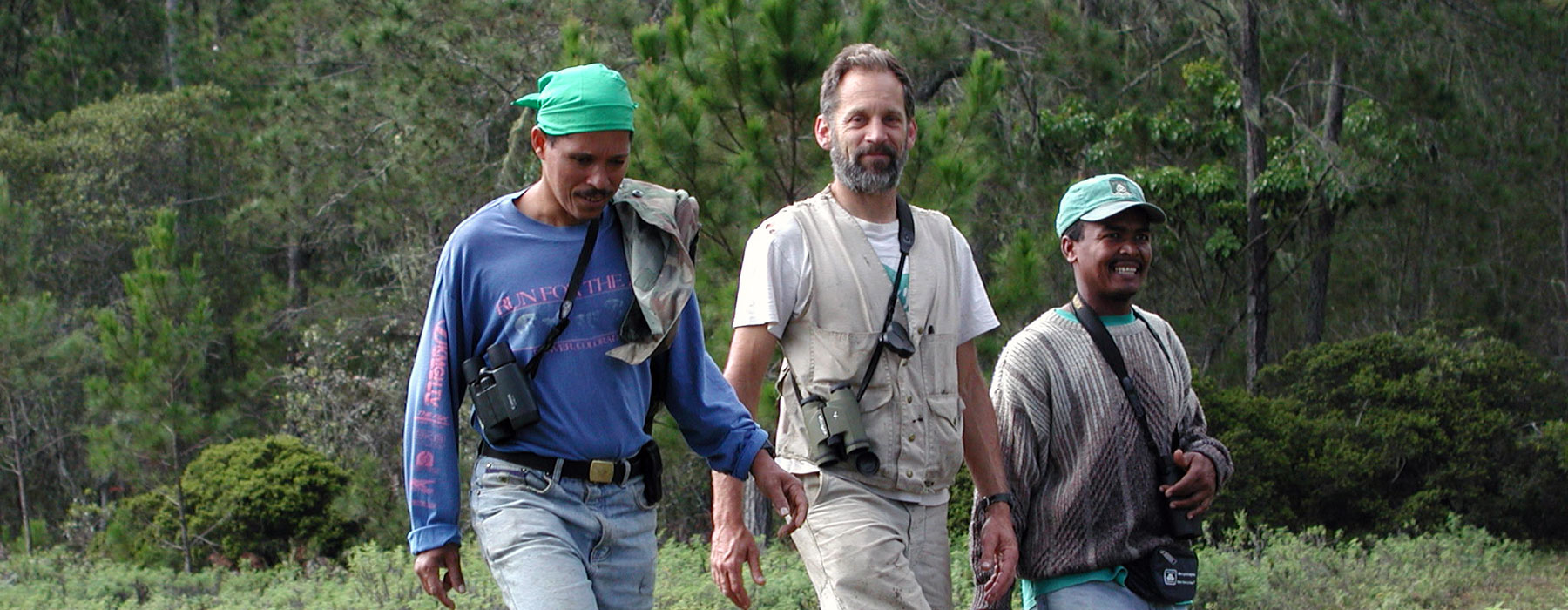Our science is leading to conservation action. We're at work in some of the last vestiges of forest in Haiti to fragmented but vital stands of mountain rainforest in northern Dominican Republic.
Our goal is simple. We aim to help save wildlife and their habitats while improving conditions for humanity too. Here's a few of the project we're working on:
 Conserving and restoring critically endangered broadleaf forest in La Visite National Park, Haiti
Conserving and restoring critically endangered broadleaf forest in La Visite National Park, Haiti
Building on nearly two years of pilot experience in broadleaf forest remnants in eastern Haiti’s Bèrak Valley, (Aux Cornichons Important Bird Area), this project will provide direct, conditional incentives within a payment for ecosystem services (PES) framework to protect reforested and intact forest areas from clearing, grazing and agriculture. Further, it will create direct incentives and teach local farmers to grow high-quality nursery stock using native tree species which local landholders will use to reforest their own parcels. To ensure long-term sustainability of this initiative,VCE staff will work closely with our local NGO partner Fondation Seguin to enhance its ability to independently conduct field operations, and build its organizational capacity to pursue competitive grant funding.
This project will restore and increase critical broadleaf forest habitat that supports Bicknell’s Thrush and other Neotropical migrant birds, as well as the rich endemic biodiversity of La Visite National Park. In doing so, our proposed efforts will enhance both local livelihoods and conservation capacity of one of Haiti’s leading environmental organizations. To our knowledge, this is the first project in Haiti that directly and systematically counters loss of highly-threatened native broadleaf forest.
Restoration of Critical Wintering Habitat for Bicknell’s Thrush in the Cordillera Septentrional, Dominican Republic
This project aims to restore critical wintering habitat for Bicknell’s Thrush (Catharus bicknelli) in Loma Quita Espuela Scientific Reserve, the largest protected area of the Cordillera Septentrional, Dominican Republic. Hispaniolan moist forests are a crucial overwinter habitat for females of this high conservation priority species. Our goal is to phase out agricultural activities and livestock ranching in the core area of the Reserve through a pilot program that combines economic incentives for farmers, legal tools such as conservation easements, and law enforcement. A survey on the extent and types of human activities within the Reserve boundaries will be conducted, and a variety of potential interventions evaluated. Baseline data on Bicknell’s Thrush populations will be collected in areas targeted for intervention, as well as in nearby intact forest habitats. Park rangers in charge of law enforcement will be adequately equipped and trained to enforce existing laws and to prevent further agricultural activity in areas under restoration in the core area of the Reserve.

